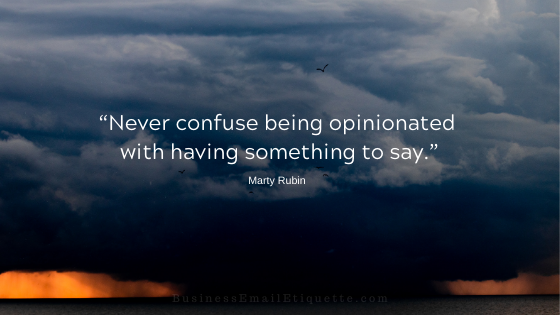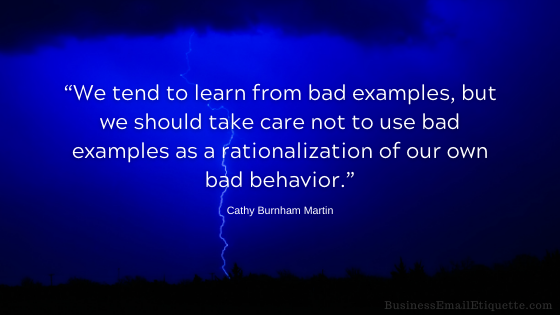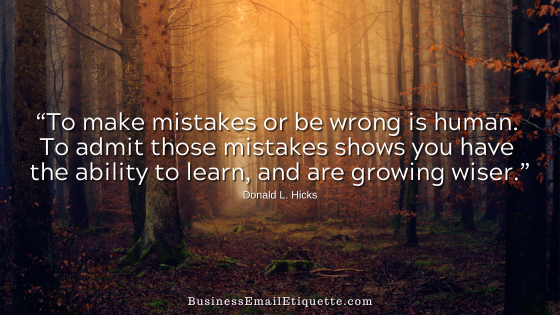Email Etiquette and Failing Businesses

Some believe email etiquette is a choice—something you can disregard. Yet, ironically and perhaps coincidentally, these are the same folks that tend to be the ones who gripe and complain that their businesses are not doing well.
Could there be a correlation?
What type of person would you prefer to communicate with?
Courteous, concise, and professional?
Or terse, confusing, and cryptic?
Professionalism in Email Communications
Is Business Email Etiquette something you don’t have to pay attention to? Email is informal after all, right? So let’s be clear — assuming that professional communications standards do not apply to email is a huge mistake.
Business communications have always been on a different level because business email has different expectations than personal communications. Business is formal, as should be your communications.
Email is No Excuse Not to Write Well
Writing is a skill. You need to continually work on, learn, and hone your writing skills. Now that email is part and parcel of business communications; I recommend that you learn to write well. Becoming a proficient writer in your professional communications can do nothing but enhance your career opportunities and your business’ potential.
To be clear, we are not discussing personal email communications today. Yes, business email can be “informal” to an extent; however, formality matters. Based on your company’s brand, culture, and how well you know the person you are emailing, varying levels of formality make sense. But don’t jump that gun.
However, there is nothing informal about any business communications — email included. Look at it this way. Business Email Etiquette covers a set of common courtesies and basic writing skills that everyone can follow to ensure you make a positive impression.
And that builds your brand and positively positions your business. Who wants to argue with that?
Make the Profitable Choice
Choosing to minimize the importance of business email best practices can be a detriment to your business. This could cause contacts to surmise that you are lazy or possibly uneducated.
Or is it that you don’t care? Unfortunately, that determination will be left to the folks on the receiving end of your business emails. Why take that risk when it is so easy to avoid?
What does it say when…
Every Day We Make Choices
So what are you going to choose to do in your business email communications? It is your choice not to make these little extra efforts.
If you choose not to take your business email communications as seriously as you should, you are most likely not prioritizing other things correctly that will contribute to your success. And build trust with those you are or want to do business with. So don’t make those you email wonder about what else you don’t take seriously.
It is also your choice to not reflect basic writing skills and courtesy for those you communicate with. In that case, your competitors, thank you!
What’s your next move?






